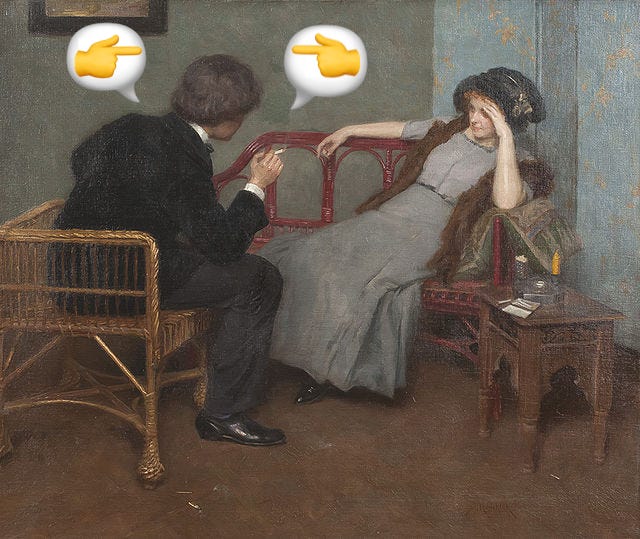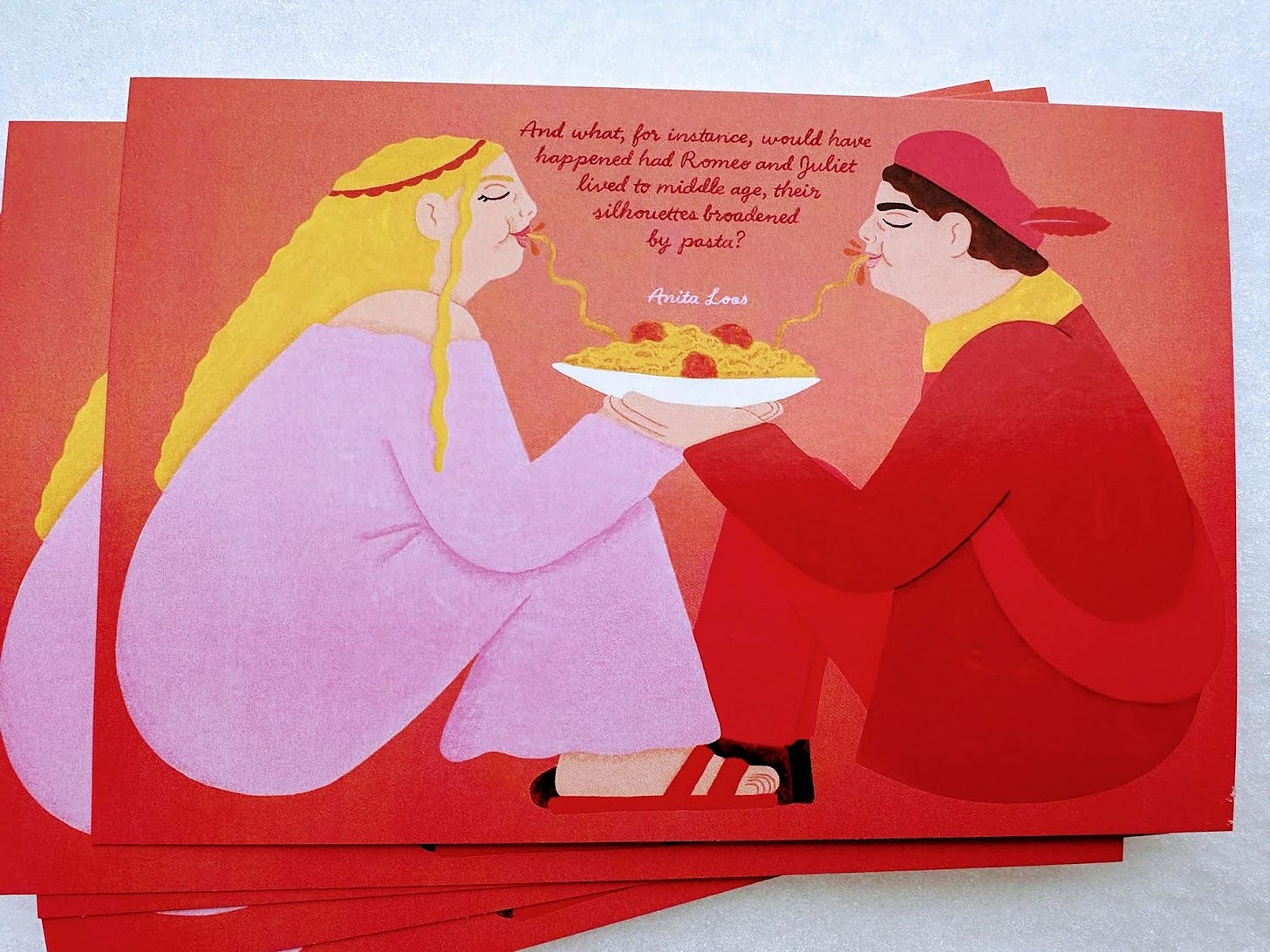You know that no matter how bad things get, they could be worse? If you tweak that truism a bit, it becomes the prevalent ad hominem argument of our time: No matter how bad I’ve made things, someone else has made many other unrelated things worse. And continues to do so! Quick, go stop them and leave me to my lesser evil!
“Between two evils, I always pick the one I never tried before.”
— Mae West
In North America, we call this whataboutism, but I prefer the British term whataboutery. It’s less of a philosophy, like nationalism or anarchism or prism, and more of a practice, like mockery or snobbery or bakery. As well, the fossil record suggests that the -ery came before the -ism. Ah, but what about the Elgin Marbles? If the British refuse to return stolen artifacts to Greece, should we really be using their language? But what about if we say we’re stealing the word to protest their theft? Three rights make a left, after all.
“A half truth in argument, like a half brick, carries better.”
— Stephen Leacock
Whataboutery is a great way to ensure that everyone always remembers all injustices at all times. Only with every misdeed ever perpetrated carefully titrated into labelled mason jars can we be fully functioning moral creatures. But what about the limited capacity of our feeble brains? And should we really be using jars made by masons?
“Quarrels would not last so long if the fault were only on one side.”
― François de La Rochefoucauld
The Soviet Union pioneered the use of whataboutery, making it a patriotic cliche. Every time some detail suggesting the superiority of the West was revealed, good comrades would bring up the abysmal treatment of Blacks in the United States. Vaclav Havel called it a “commonly canonized pedagogical trick” and offered the following example: “A: Your subway does not operate according to the timetable; B: Well, in your country you lynch Blacks.”
“A man always has two reasons for what he does — a good one and the real one.”
― J.P. Morgan
In her entertainingly angsty 2023 book Monsters: A Fan’s Dilemma, Claire Dederer circumnavigates a continent’s worth of whatboutery in her quest for the correct opinions about the great art of horrible people. Pablo Picasso was famously an asshole, even though, as Jonathan Richman and the Modern Lovers sang, no one ever called him that. But, Dereder asks, “what about his friendship with Gertrude Stein? What about his tender regard for his children and then his grandchildren?” And then, on a larger scale: “What about empathy for the stained among us? What about empathy for wrongdoers?” But then also: “What about the silence of the people whose work never got made?” And finally, what about the fact that when Hannah Gadsby curated a Brooklyn Museum Picasso takedown wonderfully titled It’s Pablo-matic, all the critics savaged it? Are those critics nice to their grandchildren? What about them? As usual, I’m the only one who thinks of the children.
“A hypocrite is a person who – but who isn’t?”
― Don Marquis
But how can we waste precious time on this subject when there is so much injustice in the world? What about cat juggling? What about that scene in The Jerk where Navin Johnson (Steve Martin) is shown a bootleg filmstrip of Pig Eye Jackson (Steve Martin) juggling three kittens and asks aloud, “Could there be a God that would let such things happen?!” What about that? Shame!
Love and carbs: The two great subjects for art! And both are featured in February’s wonderful Riposte Card by Paige Stampatori, a conceptual illustrator from Kitchener, Ontario. Upgrade your subscription to get this card in the mail!
“Morality is the theory that every human act must be either right or wrong and that 99% of them are wrong.”
― H.L. Mencken
Some days, the 99% really starts to weigh on you. What shall we cover next week?
What about the 292 issues of Get Wit Quick that preceded Issue No. 293? What about them? What about the fact that Hannah Gadsby’s exhibition was funded by the Sacklers? What about this newsletter’s mascot being Magnus the Magpie, an intelligent bird who collects shiny things but who is considered a pest in many climes? What about the fact that he took his name from the magician in Robertson Davies’ Deptford Trilogy, despite that fictional character’s misdeeds? The title font is Vulf Sans, the official typeface of the band Vulfpeck that will have you wondering, “Is subtle funk even funkier?” What about all the readers who got paper cuts from Elements of Wit: Mastering The Art of Being Interesting? What about tapping the ❤️ below?









dear benjamin,
great quotes this week! some of my faves:
“Quarrels would not last so long if the fault were only on one side.”
― François de La Rochefoucauld
“A man always has two reasons for what he does — a good one and the real one.”
― J.P. Morgan
“Morality is the theory that every human act must be either right or wrong and that 99% of them are wrong.”
― H.L. Mencken
thanks for sharing as always!
love
myq